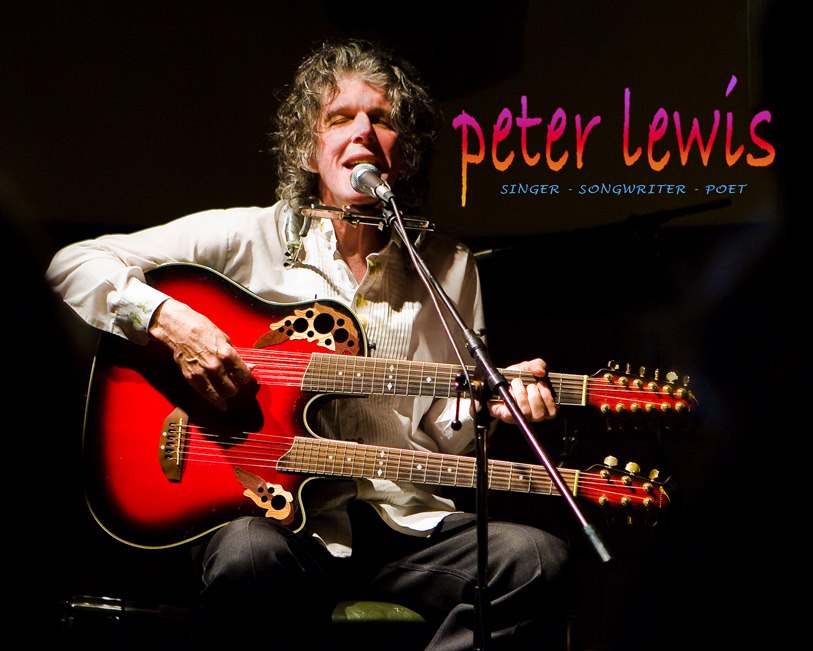
As a founding member of Moby Grape, Peter Lewis played a key role in defining the sound of the 1960s. Decades on, his creativity shines with the release of his new album, Imagination. Here, Peter reflects on Moby Grape’s legacy and the collaborations that inspired his latest work.
On your latest album, Imagination, you explore deep themes like mortality and eternity, illusion versus reality. How did you approach expressing such profound ideas in these songs? Are there any tracks that felt especially cathartic to write or perform?
I would say the overall theme of the record Imagination occurred to me after it was finished. Anyway, I don’t think I’m unique in this. At least when I write a song I’m not trying to make a point so much as to find some cool words to go with a bit of music that get’s stuck in my head.
How the song ends up being about something or other kind of just happens during the process. In other words I didn’t start out to do an album about mortality, eternity or illusion verses reality. These themes were more a product of looking back after the project was finished and asking ourselves what it was about. Of all the tracks I would say “Saying goodby” was the most cathartic write and perform. I say this as it is a song written to sing in memory of a loved someone in our lives. I sang it both at my father in law’s funeral mass and at a memorial for Kris Nelson (wife or Rick Nelson) at a service in Santa Fe.
John DeNicola, known for his work on Dirty Dancing, produced. How did your collaboration evolve, and what was it about John’s sensibilities that felt right for bringing Imagination to life?
For the songs John and I wrote together on the record, he wrote the music and I wrote the words. The process involved him sending a “track” (via e-mail). I would then put some words to that. After making whatever changes in the music that were necessary to fit the lyrics, I would send back what I had adjusted which he would then rerecord on a second track. I would then sing a final vocal over that, add real bass and drums and whatever other instruments we decided to use.
I first met John at a Moby Grape New York gig we did in the 90’s. We stayed in contact, became friends and decided to do a record together after John founded Omad. The first record I did with him all. My own songs. The song collaboration started on the second “Imagination” and is still going on.
Although John is younger than me, he has a deep appreciation and knowledge of that sixties sound. Trying to keep it alive is what we are trying to do with our music.
You’ve worked with talented musicians on this album, including Jonathan McEuen, Rob Bailey, and George Adrian. How did their contributions shape the final sound of Imagination, and how do you find working with newer generations of musicians?
I’ll take the second part of this question first. The experience of working with these younger musicians for me was somewhere between feeling like handing down some kind of musical torch to the next set of bearers and being one to their their contemporaries. I the end I’m glad to say that they all treated me more like a contemporary.
So far as their contribution to the music is concerned, they were each chosen for the individual styles; to play on certain tracks to make this record sound as eclectic as possible. Each of them being song writers as well made it unnecessary to give much direction, They pretty much were just turned loose and wound up playing cooler parts for the songs than either John or I could have thought up for them.
The album spans a range of genres, from doo-wop and country to flamenco and jazz. How do you decide which style fits a particular song? Do these choices come from early inspirations, or are they born out of experimentation during the creative process?
Hmmmm…. I would say the song styles suggest themselves, One example would be the song ‘La Mujer.’ If I remember correctly it was the chord progression that came first. It had a latin feel, hense the lyrics about a the latino mother who lost her son to the 2nd Iraq war.
This is pretty much to process I go when writing song. But there are times when the words come first. I just can’t think of one at the moment.
Your mother, Loretta Young, had a towering presence in film. How did she influence your own creative life, and did it shape your perspective on fame and artistry in any way?
One of my first memories of my mother was of being alone with her while she was getting ready to go out for the evening. In her dressing room, there was a little wind up music box we would listen to while she put on her make up. in my mind I still hear that song it played over and over. It was called the man on the moon.
That was the beginning of my fascination with music. Anyway now that I think of it, at least subconsciously, I suppose I have have always striven to make the guitar sound like that little music box.
So far as handling fame is concerned, I would say that I (along with all the members of Moby Grape) was no where close to being able to deal with it the way she would have wanted me to.
She knew that at best, any kind of performer in the entertainment business has to get famous before they get paid. The test is how to do this in an environment with many opportunities for self destruction. The psychology here is complicated. But a certain kind of insanity seems to come along with success in show business. Or you could call it an Inflammation of the ego. But whatever it is, too often drugs become the preferred way of dealing with it. Of course we have all seen where they leads, sooner or later.
Performing today, how does the experience compare to the days of Fillmore East, Fillmore West, and the height of Moby Grape’s success? What has stayed constant for you on stage, and what has changed?
For one thing, the so called concerts in San Fransisco in the early days were really more like tribal gatherings. The same three bands would rotate sets all weekend. Every Friday, Saturday night and Sunday afternoon, I remember seeing largely the same faces at all the shows. The audiences were made up of locals, teenage runaways and a few older counter culturals. The bands functioned mainly to provided dance music and not a spectacle. Add to this mix a profusion of drugs (Acid, Pot, Speed, and some downers) together with the aim of all concerned, bands and audience alike, to make music the new one world religion and you have the San Fransisco music scene (pre Monterey POP).
Over the years as performer I find myself trying more to accommodate the audience. In the begging, coming to hear live music (especially in San Fransisco) people had less expectations. Just trying to stay in the moment was the main goal. “Whatever happens is cool” was everybody’s battle cry at the time.
Of course the music business being what it is, Once the San Francisco bands were made famous, they became part of that Star maker machinery Joni Mitchell talked about in one of her songs. After that we all starting to put on shows and compete for attention, making having hit records a necessary prelude to staying in the game.
However, I have never stopped trying to have a religious experience when I play music, on stage or off. Over the years there have been times when this has been easy or not. But for me, it’s like what I heard Bob Dylan say in a documentary:
“So long as you keep yourself in a state of becoming, you’ll gonna sort of be alright.”
Looking back on your performance with Moby Grape at the Monterey Pop Festival, which played a major role in shaping the countercultural music scene, how did that moment feel for you? Did you have any sense then of how influential it would become?
My true feeling is that whatever was countercultural about the mid late 60’s “music scene” had already happened. I am also almost sure that nearly all the S.F. musicians at that time would tell you the same thing. What Monterey did was make rock stars out of them and with that came money enough to buy whatever drugs helped keep you on your feet during the endless touring and record making that was to follow.
At least for the musicians there was nothing much countercultural about that. Any number of our predecessor rock performers from Elvis on down had got gotten caught on the same commercial tread mill \ trap.
But so far as the influence we had on our fans and how it made me feel, I must admit to not caring much about that. It was all I could do to keep up with the chances that were going on in my own life.
However, younger musicians like Robert Plant , the Doobie Brothers and other players (famous or not) crediting Moby Grape with their early musical inspiration make me feel very good.
You’ve crossed paths with some of the greatest musicians in rock, including Jimi Hendrix. Can you share a memorable moment from knowing Hendrix?
A-lot of those post Monterey gigs are sort of blended together in my memory. But I remember two in particular we played with Jimi Hendrix. One was in Washington D.C. and one Santa Barbara. The Washington gig was memorable because that’s where both bands got kicked out of the Holiday Inn.
Those were the days when to limit disturbance to the other guests, all the rock bands were put on the same floor. Anyway I just remember being in my room after the show when there was a knock at my door. When I opened up, instead of the groupie I was waiting for, I got a plastic waste basket of hot water in the face.
I recovered in time to see Mitch Mitchell and Noel Redding run off laughing. After that every body started knocking on everybody else’s door, mimicking a chick’s voice to get let in and then dousing the occupant(s) with hot water. This went on until the whole top floor of the Washington D.C. Holiday was soaked.
In the end we all slept sitting up at the airport until it was time to take off for a different city. It amazes me now to think of all the really stupid things we did back then just to relieve a little boredom.
Moby Grape blended various musical styles from folk and blues to psychedelic rock. What was the chemistry like in the early days of the band? How did you all manage to blend your diverse musical influences so seamlessly?
I think I speak for everyone when I say we each came away from the first night playing together with a sense that the sum of us was greater than the parts. In this way I guess Moby Grape was (and still is) a king of musical critical mass experience in the sense that we could never really seem to plum the depths of what was going on between us musically. So far as blending our styles is concerned (if you’re talking about the physical mechanics of working together), I would only say it took practice, practice and more practice.
As I suspect all the other rock band’s original material was at the time, our songs and arrangement were born out an incessant playing together. Meanwhile there was much going on in he world and to say something about it in those days gave purpose and a direction. Although no one really had any idea where we were going, it was always that “we’re gonna get there” vibe we were looking for in our own and the music that our fellow musicians were making.
The group’s self-titled debut album is one of the key albums of the 1960s, despite initial controversy over its marketing. What do you think contributed to its enduring appeal, and how do you reflect on that album now?
Hmmmmmm….. I will take the last question first. I can only say that the experience of making that record still feels to me like we were involved in something prophetic. By this I don’t mean creating some kind of timeless masterpiece. Skip and I were chosen to go with our producer to mix the record in New York. I remember falling asleep on the plane coming home and having a dream about the track “sitting by the window”. In it, I was alone in the same house I bought two years later. By then my wife had left me and I was just that guy my song.
However, I don’t think this was precognition. Over the years I have come to believe we are all in some kind of feedback loop with the future. In other words, whatever we show the world about ourselves, we become. Especially for a preforming artist this can be challenging. Anyway I believe without knowing it, I had written an imaginary lost love in “sitting by the window that became real in my own life. I don’t pretend to know how this works. But Moby Grape’s first album made clearer my perception of how the world works and I sincerely hope that is what contributes to it’s enduring appeal for others.
Skip Spence’s departure and subsequent struggles are part of the band’s story. Can you reflect on Skip’s contributions to Moby Grape and the impact his presence and absence had on Moby Grape?
Skip was half creative genius, half Christ figure, martyr to the cause of personal freedom and the spirit of Moby Grape. His songs were prophetic. and spoke to a future that I’m not sure he knew he was creating for himself (and us). In the beginning this was all good. His songs were like promises; ‘Indifference’ and ‘Omaha’ being unmistaken examples of better things to come.
This is just what people wanted to hear at the time and many of us saw Skip as a kind of rock messiah. But I think this preconception of him got Skip to the point where he felt overwhelmed. We were doing our second record when he wrote the song ‘Seeing.’ This song was the exact opposite of ‘Omaha’. In ‘Seeing’ he says “take me far away I’ve seen the dream of death today” and in both songs he’s talking to us, the other band members.
In the end, Skip didn’t stick around long enough to put ‘Seeing’ on our second record. But for our third record we completed the unfinished track and included it as the last song. Although Skip wasn’t there for the third or fourth Moby Grape records, he was back for Twenty Granite Creek, our fifth.
I’m not sure you could call this a happy ending. He died almost forty years ago. Jerry has passed also. But it does prove what Skip said in the beginning in ‘Omaha,’ “listen My friends, I’m yours forever.” He was right. Moby Grape will still be around after we’re all gone.
Finally, what key tracks would you recommend from across your career for someone who is new to your music?
So far as the music of Moby Grape is concerned, since there were (are) five singer songwriters in the band, Moby Grape became sort of a social microcosm, documenting a span of many years in a changing world from five different points of view.
I would also say that after the first few years, because we were no longer in the limelight, we were largely writing songs about our personal lives. A pattern of splitting up and reforming in one permutation or another emerged to make the records we made during this time like reflections of the way any one might struggle through life in America.
In my solo carrier I have basically made the same kind of music. I don’t consider myself as belonging to one particular genre. I find myself drawn to music about the human condition we all share. The more redeeming it is the better. I have been in a position to bear witness to the way life can be hard. But I consider myself to be among the more fortunate of us with no reason to rage against my own fate. I would let others who have been treated more unfairly in life do that.
In the end I would just like to be forgiven for the mistakes I’ve made, (which are plenty), in return for my forgiveness of others who might have hurt me. I see this, and not success in any business (music or otherwise) as the worthy goal in my life. I know this probably won’t save me any suffering along the way. But that’s how I want to be remembered when I’m gone and way I’d like my music both with and without Moby Grape to be heard.




